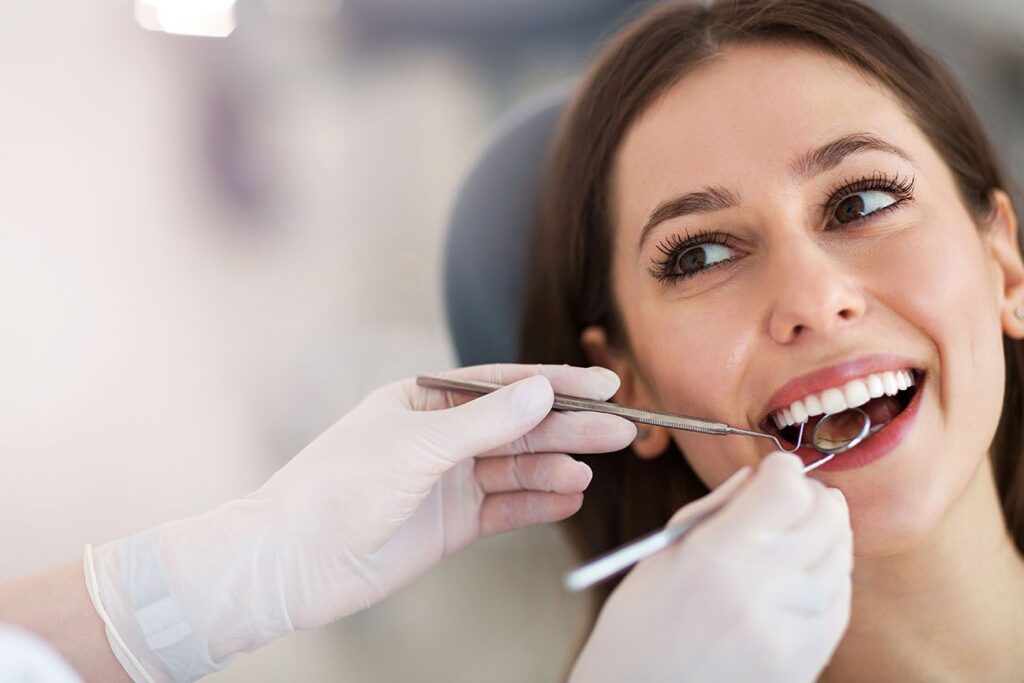That sudden zing of pain when you bite into ice cream or sip hot coffee? That’s tooth sensitivity, and it happens when your tooth’s nerves get exposed. While the pain might fade quickly, it’s your mouth’s way of telling you something’s not right.
Sensitive teeth usually don’t get better on their own. You’ll need your dentist to figure out what’s going on and fix it. But don’t worry, there are plenty of ways to treat it and none are as scary as that shooting pain you’ve been feeling.

Quick Fixes Until You See the Dentist
While only your dentist can properly fix sensitive teeth, you can do simple things at home to take the edge off the pain. These tricks won’t solve the underlying problem, but they can make life more comfortable until your appointment.
Start by switching to a toothpaste made specifically for sensitive teeth and using it regularly. These special formulas contain ingredients that help block pain signals from reaching your tooth’s nerves. You might not notice a difference immediately, but many people find their teeth become less reactive to hot and cold after a few weeks.
The way you brush matters more than you might think. If you’re scrubbing your teeth like you’re cleaning bathroom tiles, you could actually be making sensitivity worse. Try using a soft-bristled toothbrush with gentle, circular motions instead of hard back-and-forth scrubbing. And don’t brush right after eating acidic foods or drinks. Your enamel is softer then and more likely to wear away.
When that zinging pain strikes, try rinsing with warm salt water. Mix about half a teaspoon of salt in a cup of warm water and swish it around for 30 seconds. This simple solution can help soothe irritated gums and temporarily reduce discomfort.
For sudden sensitivity when eating, try avoiding extreme temperatures. Let your coffee cool a bit before drinking, and skip the ice-cold beverages. If certain foods consistently trigger pain, avoid them until your dentist can address the root cause.
Remember, these are just temporary solutions. They might help manage the symptoms, but they won’t fix whatever’s causing your teeth to be sensitive in the first place. That’s why it’s still important to see your dentist, even if the home remedies seem to be working. They can see exactly what’s wrong and stop the sensitivity for good, not just cover it up.
Dealing with Sensitive Teeth? Here’s How Your Dentist Can Help
First Step: Finding the Problem
When your teeth hurt, it usually means your enamel has worn down. It leaves the sensitive parts underneath exposed. Your dentist will check for a few common culprits. Sometimes it’s just general wear and tear. Years of chewing, grinding, or even brushing too hard can thin your enamel.
Other times, there might be a cavity letting cold and heat sneak in. Old fillings or crowns that don’t fit right anymore can cause trouble too. Once your dentist spots the issue, they can stop the sensitivity in its tracks.
Fixing the Damage
For small areas of worn enamel, your dentist might use tooth bonding. Bonding is a quick treatment where they apply a tooth-colored resin that acts like artificial enamel. It’s like putting a protective shield over the sensitive spot.
If the problem’s bigger, like from a large cavity or cracked tooth, a dental crown might be the answer. This custom-made “cap” fits over your whole tooth, keeping everything protected. Think of it like a helmet for your tooth. Nothing’s getting through to those nerves.
Preventing Future Problems
After treatment, your dentist will help you keep sensitivity from coming back. They might suggest:
- Apply a fluoride varnish to your teeth
- Switching to a softer toothbrush
- Using special toothpaste for sensitive teeth
- Wearing a night guard if you grind your teeth
- Cutting back on acidic foods and drinks
The sooner you get sensitive teeth checked out, the easier they are to treat. That quick twinge today could turn into bigger problems tomorrow if left alone. Ready to eat ice cream without wincing? Give Texas Dental a call. Give us a call at 972-381-1888 or request an appointment online.
If dental visits make you anxious, tell your dentist. They can explain every step before they do it, and some offices even offer sedation options to help you relax. There’s no need to tough it out. Modern dentistry has ways to make you comfortable while fixing your smile.
